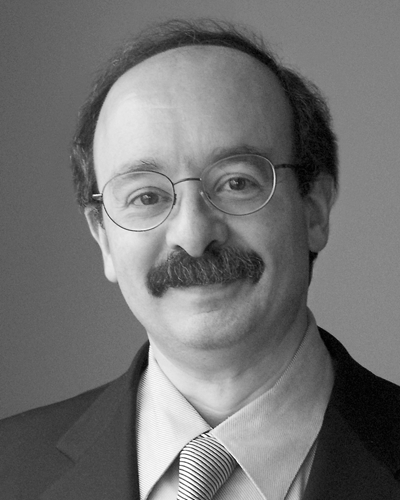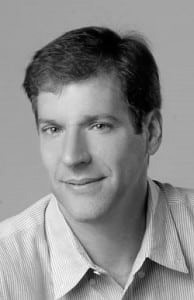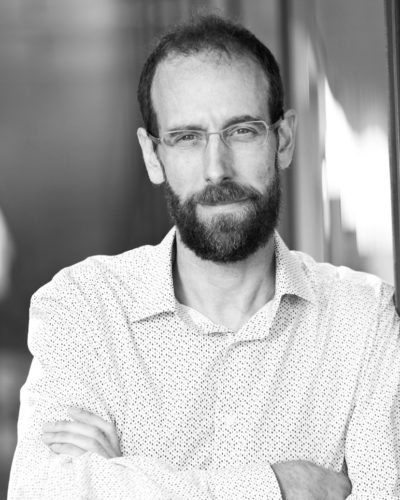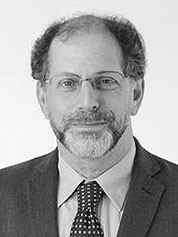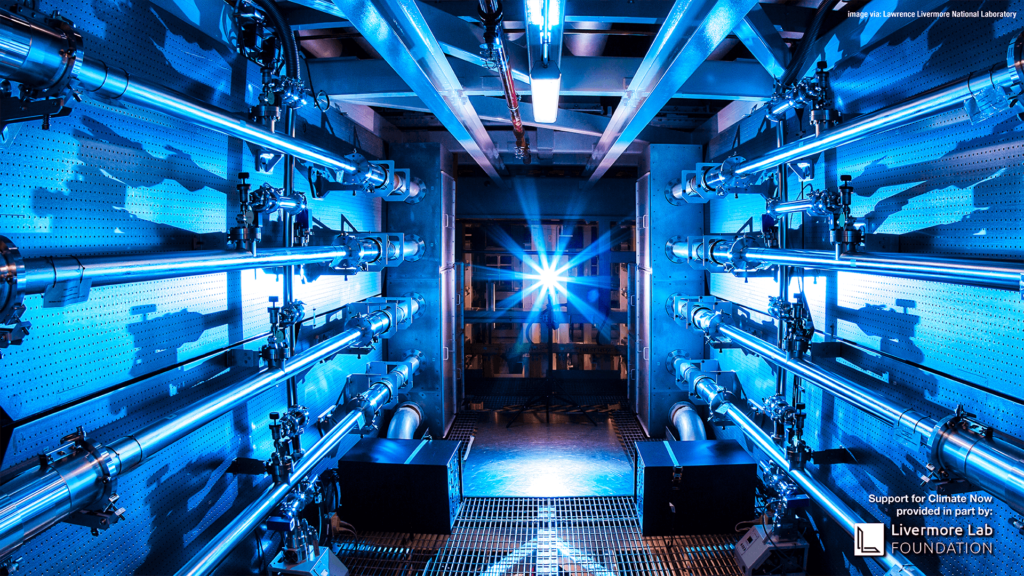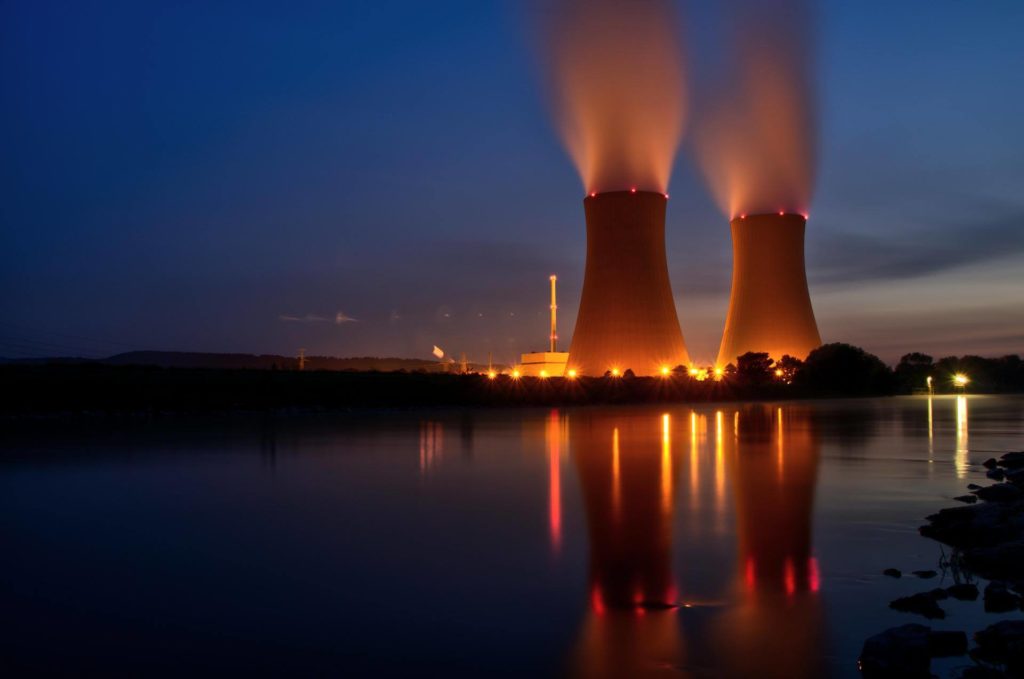TRANSCRIPT
James Lawler: [00:00:00] Welcome to Climate Now, a podcast that explores and explains the ideas, technologies, and solutions that we’ll need to address the climate crisis and achieve a net zero future. I’m James Lawler, and if you enjoy this episode, leave us a review wherever you listen to your podcasts. Share it with your friends, or tell us what you think at contact@climatenow.com.
Coming up is the Carbon Management Technical Symposium that Climate Now is presenting with California State University at Bakersfield and The Livermore Lab Foundation at California State University Bakersfield on April 21st. You can attend virtually by going to climate now.com, navigating to Climate Now events, and clicking on the virtual registration button on the event page.
Hope to see you there. In today’s episode, we’re taking a look at everyone’s favorite topic, which is, of course, nuclear power and the role it could play in our future energy system. We’ll hear from different experts with [00:01:00] differing perspectives on the promise, as well as the risks of relying on nuclear power on the path to decarbonization.
But first, it’s time for our segment This Week in Climate News.
Now it is time to dive into nuclear energy. First, we’ll go over some of the basics. How does nuclear fission produce energy, and what are some of the key types of nuclear reactors? Next, we’ll discuss how existing nuclear plants, along with some novel designs currently in development, could help phase out fossil fuels.
We’ll also touch on some of the nuclear subsidies in the Inflation Reduction Act. Then, we’ll hear arguments for and against the wide scale development of new nuclear plants. And we’ll dig into some of the risks and concerns related to nuclear safety and proliferation.
To set the stage with some nuclear fission basics,here’s Rachel Slaybaugh, who is formally a tenured associate professor of nuclear engineering at UC Berkeley, and is now a partner at the venture [00:02:00] capital firm DCVC which has investments in clean energy technologies including novel nuclear designs.
Rachel Slaybaugh: So fission is when a heavy atom that is a little bit already unstable internally, like uranium 235, absorbs a neutron,
and the addition of that neutron adds enough extra energy it becomes so unstable, it splits into two pieces, and when it splits into two pieces, a teeny bit of mass is converted to energy. So I think many people are familiar with Einstein’s equation E equals mc squared, that’s the relationship between mass and energy. So a teeny bit of mass results in a lot of energy. So this unstable atom splits into two pieces and releases a whole bunch of energy, and then that energy is available to go on and create electricity. So how we do that is it basically comes out in the form of heat, and that heat heats up a heat [00:03:00] transfer fluid like water, and then that water can go make steam and turn a turbine and then you can get electricity.
The reactors that we have predominantly on earth are called light-water reactors, and that means we use regular water, which we call light water as the heat transfer fluid. And so we, we use uranium 235 in these long fuel rods. The fuel form is a ceramic pellet. These ceramic pellets are in long metal tubes. Those are surrounded by water, so the fission happens, it heats up the water. And there are, there are two systems. There’s a boiling water reactor where the water boils directly and turns a turbine, and there’s a pressurized water reactor where there’s an intermediate heat exchanger loop and you still get steam that turns a turbine.
James Lawler: Beyond light-water nuclear power plants, what are the other kinds of fission reactors that either exist or are thought to be able to exist?
Rachel Slaybaugh: We [00:04:00] categorize reactors using a few different criteria. So one is coolant type so light water reactors are cooled by light water. Reactor size is one we’re increasingly using, so that’s how much electricity a reactor generates, and we often talk about the neutron energy, and that’s the energy of the neutron that causes fission. And sometimes we’ll designate a fast reactor because they have high energy neutrons and those can burn up extra stuff. And then a final main major consideration is the fuel form. So an example, we have gas cooled fast reactors and there are a variety of sizes of them, but we use helium as the heat transfer medium.
And they often, not all of them, but you know, there are reactors that are gas cooled that have high energy neutrons. So when you hear all these different words, a small modular reactor is the reactor size, a lot of times we hear the coolant, a lot of times we hear the fuel [00:05:00] form, a lot of times we hear the neutron energy.
And you can kind of combine these all in different ways so sometimes the syntax gets a little confusing.
James Lawler: Following the first successful self-sustaining fission reaction in 1942 by Manhattan Project Scientists in the United States, research at the Argonne National Laboratory developed the first nuclear power plant to produce usable electricity in the early 1950s.
Over the course of the following decades, nuclear energy production grew rapidly across the globe with growth peaking in the 1980s. Since then, deployment of nuclear energy has slowed significantly, particularly in the United States. Here’s Daniel Kammen, professor of energy and chair of the Energy and Resources Group at UC Berkeley on the state of nuclear energy production today.
Daniel Kammen: There’s about 425 nuclear power plants around the world. For a context, about a hundred of them are the United States, and another 59 or 60 are in France. [00:06:00] So that’s the two biggest chunks. In the United States, nuclear provides almost 20% of electricity. Worldwide, it’s about 10%, but at least in the United States, we haven’t built a new nuclear power plant since 1996 in the Watts Bar 2 plant in the US South.
But on the other hand, one remaining nuclear power plant, Diablo Canyon, in the central California coast is a plant that the state legislature just voted to keep open for at least an additional five years, extending the life from 2024 to 2029- 30 and so important. Not the biggest chunk, but it is base load and it’s clean.
The opinions vary dramatically as to whether new nuclear plants of novel designs, these so-called small modular plants, the SMRs advanced concepts using liquid metal, or fast sodium or whole variety of other technologies end up being needed in the fleet. [00:07:00]
James Lawler: The push to decarbonize has brought some renewed interest from various stakeholders to nuclear power, particularly in novel designs like small modular reactors.
Rachel Slaybaugh: Timeline-wise, they’re actually microreactors, like in the sort of 1, 1, 5, 10 megawatts that may come online sooner. Through both private efforts and some government efforts, Those are sort of 2025, 2026, sort of. Those are probably first but of the-what I call the larger- but small modular reactors, which are larger than micro reactors, we expect at the end of the decade.
And so the Advanced Reactor Demonstration Program, the target date is 2027. Now, I expect maybe 2028, 2029. There’s also NuScale, which is not part of the Advanced Reactor Demonstration Program that also is planning to come online in 2029. [00:08:00] So NuScale is a light-water reactor that is small and modular, that’s being built at Idaho National Lab and all the customers are, it’s a utility group called UAMPS. And then there is a new high temperature gas reactor by X energy. And that’s, um, let’s see it, it’s four 80 megawatt modules, so 320 megawatts. They’re still selecting the location, but the plan is to build that in conjunction with DAO to provide process heat on the Gulf Coast.
And then Terra Power is a sodium cooled fast reactor. Their project is called Natrium, and it’s going to be built at an old coal plant facility in Kemmerer, Wyoming, and that’s 345 megawatts electric.[00:09:00]
Yeah, it’s a good question. So people are working on a few different sort of main types. I’m gonna leave microreactors kind of in their own bin because they serve a different market. They’re like replacing remote diesel generators and things where like right now the only choice is diesel. And so doing anything better than diesel is great.
But we have gas reactors, sodium fast reactors and molten salt reactors so it’s kind of like the three leading candidates. I think it is unlikely that all three of those are gonna end up being deployed in large numbers because eventually it will make sense to consolidate the supply chain to only one or maybe two.
Who’s gonna win is, you know, they all have different benefits, and I think there are a lot of broader [00:10:00] policy choices, frankly, about which one is better. Some of them are better at providing process heat. Some of them are better at recycling fuel.
James Lawler: Past this past summer in 2022, the Inflation Reduction Act subsidizes both the continued operation of the United States existing nuclear fleet and promotes investments in new nuclear technologies.
Here’s Jesse Jenkins, a macro scale energy systems engineer at Princeton University and a lead researcher for the Repeat Project, which is one of the main modeling groups that helped lawmakers understand the potential impacts of the Inflation Reduction Act while it was being considered in congress.
Jesse Jenkins: The bill does two things for the existing fleet, which has been economically threatened across the country by cheap natural gas and the growth of renewable electricity.
And in that order, gas has had a much bigger effect than renewables, but renewables are growing and will have a larger effect in the future. And so, you know, basically nuclear plants have not been subsidized as a clean energy [00:11:00] resource in this country at a federal level ever. You know, in the same way that you get a production tax credit for investment tax credit for renewable electricity. And so what the bill does is it says- and a number of states have decided to take action on that, including New Jersey, where I live and New York State, which has supported its upstate reactors, even as it closed Indian Point. Illinois, Connecticut, they have also done the same thing.
So they basically stepped in and said, these resources are a critical foundation for our state’s clean energy goals. We want to be moving forward, not running to stay in place, not using clean electricity to replace clean electricity. And so we’re gonna subsidize those reactors to stay operating. The federal government now for the first time is stepping into that job and is offering a tax credit of up to $15 per megawatt hour for existing nuclear reactors.
It is less than that if they earn more revenue. So it’s an interesting formula that if they start earning more than $25 a megawatt hour from the electricity markets, the $15 starts to decrease. And it could be zero if you’re earn enough. So the idea is these reactors are pretty affordable. We don’t need to be subsidizing [00:12:00] them unnecessarily, but we do need to be providing basically a guarantee that there’s revenue there if they need it, and that will help them continue to operate so that we can keep that kind of foundation of carbon-free electricity and use all the new renewables that we’re building to shut down and phase out coal and gas because that’s how we drive emissions down.
Now the separate question is what role might new advanced nuclear reactors play in our future energy system. And that’s a big question mark honestly. Now, the key to remember is there are different types of resources that combine to kind of fill out our full energy diet. In our work, we have sort of a three-legged stool for what makes a cost-effective carbon-free power system.
The first is fuel saving variable renewables. When you got them, they’re free. They don’t have any fuel and you can not use something else that that burns a lot of fuel. So wind and solar, they, you know, again, the tap goes up and down like you use them when you got them, and that helps you displace something else, but you know, on a variable basis.
Then you have balancing or fast burst resources like battery storage or demand [00:13:00] flexibility or demand curtailment. Right when prices go up, some factories turn off when the prices go high. Those are great for managing variability on the kind of hourly or intra daily time. But your batteries are gonna run out if you try to run them for two weeks, like they’re gonna run outta juice after the first couple hours.
James Lawler: Mm-hmm.
Jesse Jenkins: Most batteries are sized to run for two to four, maybe six hours. And so the firm resources really are the only ones that are not energy constrained meaning you can run them as long as you need them, and they’re not weather dependent means you can run them whenever you need them. And that makes them a really critical compliment to the weather dependent variable renewables and to the shorter duration fast burst resources.
And we need that full package, that kind of balanced energy diet to cost effectively and reliably operate our grid. And the challenge right now is while wind and solar and increasingly batteries and demand flexibility are doing a great job filling those two pieces of the pie or those two, you know, legs of the stool we are really dependent on natural gas and existing nuclear plants and coal plants to fill that firm role today, and we can’t do that for the long term. Right. The nuclear plants, even if [00:14:00] we keep them for another 10, 20 years, like they’re gonna have to be retired eventually.
James Lawler: Mm-hmm.
Jesse Jenkins: The coal and gas plants need to go as soon as we can get rid of them. So that’s where the firm, low-carbon technologies come in and they’re all much less mature than wind and solar, and also than we really want them to be. And so, you know, you think about advanced geothermal energy, we’re opening up new ways to tap into geothermal all over the country. You know, that harnesses innovations from the oil and gas sector.
But those are all early stage companies that are demonstrating how to do that. Think about hydrogen production again, our clean hydrogen industry is in its infancy, that’s gonna ramp up and maybe provide a clean fuel. Carbon capture to retrofit existing gas plant. Again, that’s nascent. We’ve built demonstration projects, but there’s no scale in that industry yet.
And then advanced nuclear, which we tried to build big, you know, gigawatt scale reactors, that went pretty terribly. And there’s a lot of companies betting now on both smaller modular designs that could be kind of serial produced in a factory environment and then [00:15:00] assembled on site. And also some advanced reactor designs that aren’t like the light water reactors in our conventional power plants or submarines that use different coolants and different fueling structures and may have some inherent cost and or safety advantages to those designs.
Now, the challenge is can you build them to compete, not necessarily with wind and solar, but can you compete with all the other clean firm power options? What the Inflation Reduction Act does is subsidize all of them and says, the good news is you’re now cheaper than the dirty stuff, but now you guys all have to go compete, you know, with the subsidies at your back. And so hydrogen again gets a subsidy, long duration storage, gets quite a generous subsidy. Nuclear, geothermal, any advanced clean, carbon-free electricity technology gets a either 30% investment tax credit or a production tax credit.
And they’re now, for the first time ever on exactly equal footing in terms of the policy support as wind and solar receive. So nuclear’s just been given a shot at it, and they have to, you know, they have to take the shot and succeed. I’m optimistic [00:16:00] about some of the designs, but I really – who knows, right? I mean, it’s, it’s a huge technology risk and they have a lot of competitors too that are all you know, working in the same space.
James Lawler: Despite the lack of nuclear deployment over the past decades. Some experts are optimistic that these new developments in small reactor designs could help overcome some of the persistent cost barriers to nuclear power. Here’s Rachel Slaybaugh, again of DCVC.
Rachel Slaybaugh: We’ve built- we tried to build four. We are now completing two reactors in the last 30 years, 40 years. So we haven’t built these things for a long time. The workforce doesn’t exist, the supply chain doesn’t exist, the know-how doesn’t exist. So the reactors that are like not going well, of course they’re not going well. And a lot of the motivation around small modular reactors is instead of being like, why don’t we fix, you know, building large, complex things in United States, like that’s a big problem.
The idea instead was why don’t we [00:17:00] design reactors? They just get around those problems so that you can rely on factory manufacturing. You can make the system simpler, you can make things more repeatable so you can incorporate learning more quickly. You just don’t have the kinds of system complexity.
And so a lot of the motivation around advanced reactor designs is avoiding what makes reactors expensive in places like the United States and Western Europe. We’ve actually had a ton of improvement in factory manufacturing and industrial sort of technology. And so if you can take advantage of the things that are like, we can make economy of numbers instead of economy of scale, we can make things in a factory. We can use all our sort of like, sensors in monitoring and digital twins and there’s, there’s a lot of technology you can use that should be able to help. And so the question is, can we bring that to bear effectively enough in nuclear? Because it’s also, [00:18:00] you know, when you build one complicated thing occasionally, it’s hard to learn.
If you build a bunch of small things quickly, it’s easier to learn. Maybe just really quickly going back to like, why nuclear, we need so much energy and we need so much electricity to fight climate change. Taking a tool off of the table given the scale of the problem feels shortsighted to me, especially when it actually already is a tool that people are using effectively in many places.
Amory Lovins: Bloomberg New energy finance is [00:19:00] found over the past few years that for upwards of 90% of the world, and soon in all, the cheapest way to meet even a steady load is solar or wind plus backup. And the backup can be more efficient or timely use. In other words, on the demand side, it can be other renewables of other kinds, or in other places it could be fossil fueled or it could be storage. Small modular reactors and so-called advanced reactors, and there are about 50 odd kinds of both being pursued, are the latest effort of the nuclear industry to rebrand itself as having some shiny new object you could admire that will solve all their previous problems.
But broadly speaking, the early units will cost at least twice as much per kilowatt [00:20:00] hour as existing reactors, which are already 3 to 13 times what you would pay for renewables to do the same thing. And then during the many years in which you would be seeing if SMRs work right. So you do the math, you know, SMRs would have to be 12 to 52 times cheaper in order to beat renewables. Well, it is hoped of course, that the initial factor to cost disadvantage will be more than offset by mass production, but there is no way on earth mass production can get you to a factor 12 to 52.
So nuclear can never catch up. It’s too little, too late. But meanwhile, as long as it’s operating or planned nuclear hogs, the market space, and it diverts investments by private investors or [00:21:00] governments. So it’s actually setting us back in saving the most carbon with the fewest dollars in the fewest years.
Rachel Slaybaugh: You know, there’s, there’s like a lot of debate around what the, what nuclear plants might cost in the future, these new designs and many people have projections. My opinion is we don’t know until we build them cause that’s sort of how all technologies work. We have guesses, but we don’t know. For the large plants that we have right now, in countries that are good at building large mega projects, nuclear plants are actually like pretty cost effective. They’re, they’re a little bit more than gas plants, but they’re not way more than gas plants. For the US, we’re not very good at building large mega reactors to the whole point of building these small ones is to try to see if we can make them much more cost effective.
Wind and solar, they’re [00:22:00] installation costs have kind of bottomed out because right now, new installations are driven a lot by labor. It’s not clear that we can get the raw materials to be less expensive, and now because of demand and supply chain considerations, actually renewable wind and solar installations are becoming more expensive.
And so I haven’t actually seen compelling evidence anywhere that somehow wind and solar are just gonna keep getting cheaper and cheaper and cheaper. Especially if you consider installing storage alongside them. I don’t think they’re gonna get radically more expensive. But right now they’re getting a little bit more expensive, sort of like 30% more.
James Lawler: Beyond concerns about cost and the speed of deployment, issues around safety, waste disposal, and the potential for nuclear proliferation could pose significant challenges for the nuclear industry and hamper social acceptance of wide scale nuclear deployment. Here’s Edwin Lyman, the director of Nuclear Power [00:23:00] Safety at the Nonprofit Union of Concerned Scientists.
Edwin Lyman: The standard disclaimer for the Union of Concerned Sciences is we’re neutral on the question of nuclear power. So we neither promote it nor oppose it, but we do think that it has to be considered in context and that it’s risks have to be taken seriously and the resources have to be put into place to fully address those risks or it’s not going to be an option in the future because, one or more nuclear disasters will likely sour the public’s acceptance and nuclear power even further.
So it’s in everyone’s interest to make sure it’s safe. The problem is that right now, the only way you can ensure a better safety for nuclear power is by spending more money. And that means building more defense in depth, more barriers to fission product release, more backup safety systems that add cost. There are [00:24:00] those who have the belief that you can actually reduce the cost of nuclear power and improve safety at the same time, but those simply haven’t been born out yet.
So at least for the foreseeable future, nuclear power is gonna remain expensive and that causes a problem for the technology because the cost of renewables, when solar continues to decrease. So, nuclear power will have to become more economically competitive if it is going to expand, but it will have to become safer at the same time.
The other aspect of the fast reactor is that it has the promise or peril of the potential to breed plutonium. Uh, now all nuclear reactors that run uranium fuel produced plutonium in their cores as a byproduct. But in the light-water reactor fuel cycle, that plutonium is diluted in the highly radioactive spent [00:25:00] fuel that is generated by those reactors.
And unless you subject that fuel to a chemical process known as reprocessing, that plutonium remains more or less inaccessible. But in a fast reactor, you do have the potential to, if you use plutonium as the fresh fuel to end up with slightly more plutonium in the end than you start out with, and this was held out in the 1950s as the holy grail of nuclear power, that you could actually have a system which would generate not only fuel to supply itself, but also produce excess fuel for other reactors.
The problem is the plutonium is a material that can be used as a nuclear weapons fuel in very small quantity and only takes a few kilograms of plutonium to make a nuclear bomb. And so if you have a fuel cycle with separate plutonium in it, you have to protect that material with a very high degree of effectiveness from being stolen, [00:26:00] and that adds cost and risk to any fuel cycle.
James Lawler: If we conclude that developing new nuclear fission generating capacity is a good idea, we will still have to address concerns about safety, cost, and our practical ability to actually do it. Here’s David Keith, a professor of applied physics and public policy at Harvard University, and co-founder of the Direct Air Capture Company, Carbon Engineering on what this might take.
David Keith: Nuclear as it is now is a shit show. Let’s just be honest about it. It’s a shit show. A bunch of different reactors being built with costs overruns. It’s very hard to look at it and look happy. But on the other hand, you can pull from history, a story that says humans can actually go build these things at costs that are of order two or 3000 bucks a kw and they can operate them for decades and they work.
James Lawler: Mm-hmm.
David Keith: And so it’s not, that’s not theory we did it. So what that, the way I think about this is it’s an existence proof.
James Lawler: Mm-hmm.
David Keith: It says that if, and maybe this gets to the [00:27:00] whole problem, if we could get the politics right, it is possible to build out a lot of nuclear power at costs that are very much competitive with other low carbon power sources.
We know because we did it that you can build nuclear power and operate it at costs that deliver low carbon power 7/24 in places more cheaply than you can now do that with solar. That’s just a fact. That’s not to say there aren’t waste or decarbonize with solar. I believe there are, but I think that is a fact that matters.
So I would say we know that it’s doable in a kind of existence proof sense, but in some kind of organizational sense, we don’t know how to do it. We do not have a working technological ecosystem that allows us to produce large quantities of nuclear power plants. Now, I think we could have one, but we don’t have one now.
If you think we should get to nuclear, we won’t get to there from here by just incrementally adjusting the kind of broken system we have. It would require a real reboot that was a [00:28:00] reboot in institutions that are doing the builds, in the regulatory institutions and in the public conversation about it.
But those rebuilds are possible and the force of needing to do something about climate may force a reboot.
